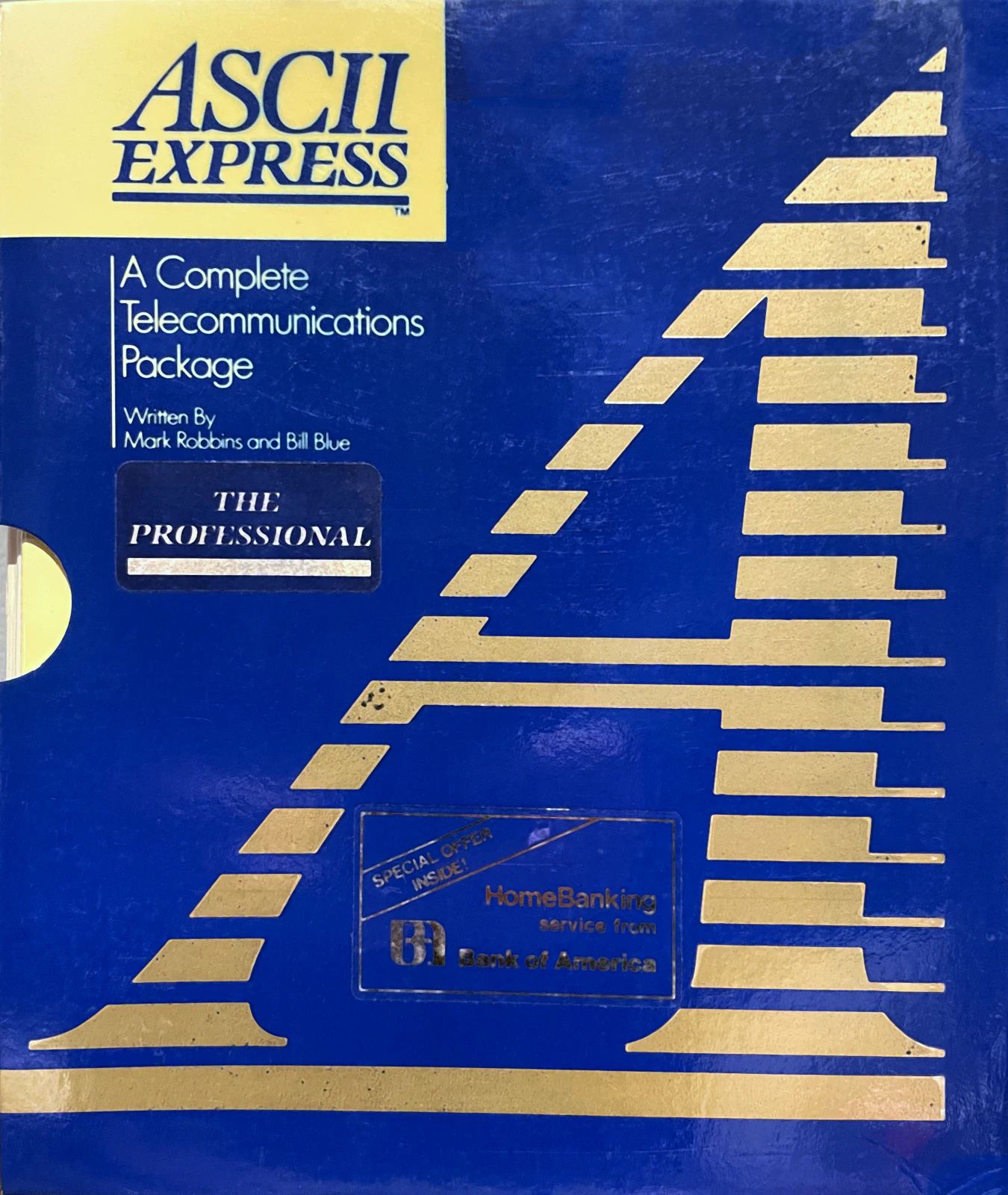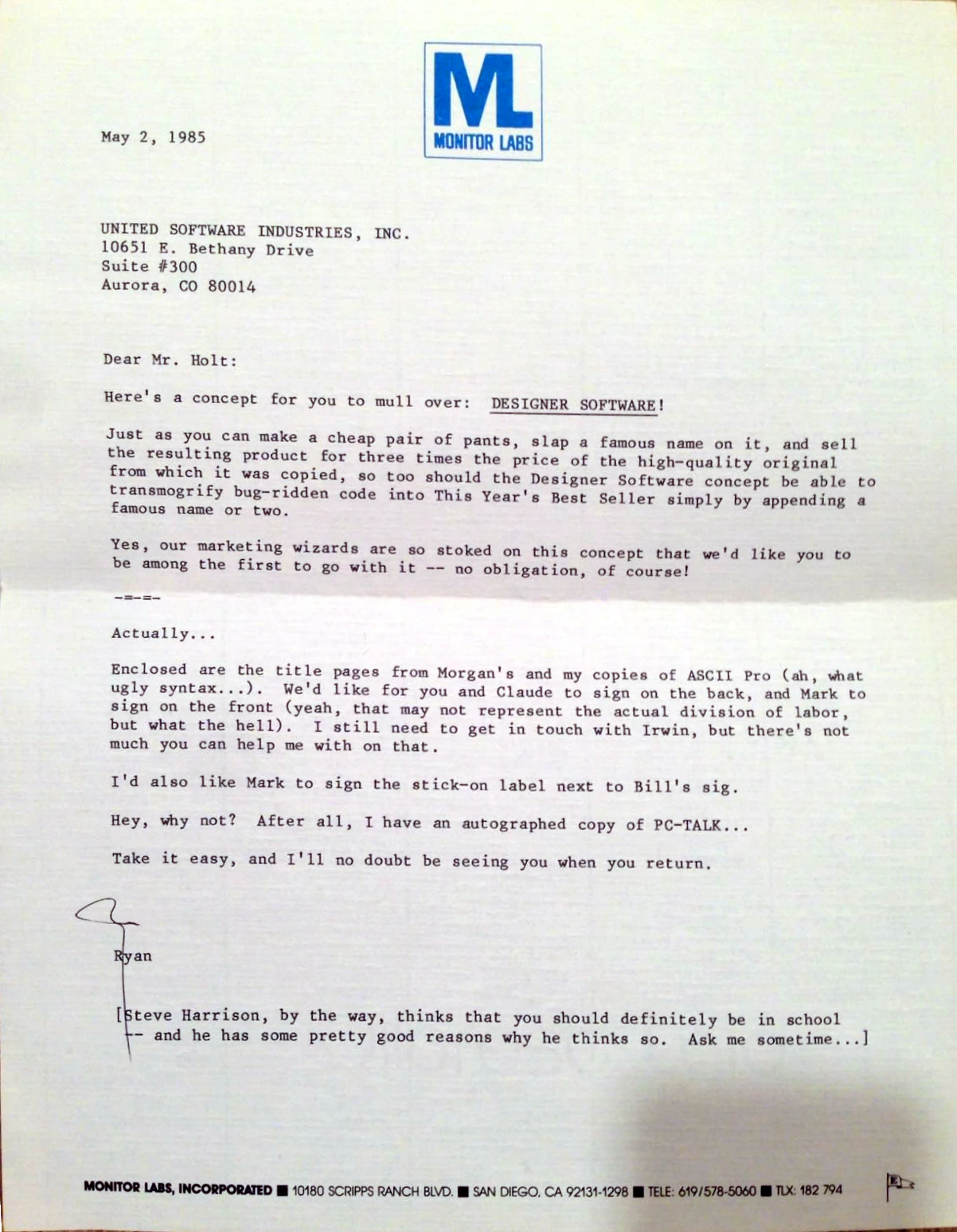ASCII Express Pro for MS-DOS: A Collaboration with Bill Blue
Writing and editing parts of the ASCII Express Pro for MS-DOS manual in 1985 was my first opportunity to work with Bill Blue and United Software Industries, Inc. This was a significant moment for me, as it marked the beginning of a collaboration with one of the industry’s more inventive minds in the world of modem communications and terminal software.
Bill, a key figure in the early BBS (Bulletin Board System) community, had developed ASCII Express Pro, a terminal program for MS-DOS that was designed to streamline data communications over modems. As a versatile and user-friendly terminal emulation software, it stood out for its support of multiple communication protocols, including XMODEM and YMODEM, which were critical for file transfers on dial-up connections. Bill enlisted an enthusiastic team from his BBS to help test and document the program, many of whom were well-versed in modem communications. The team included Ryan Gale, Irwin Hom, and Joe Holt—who, in addition to being a contributor, was also one of the program’s developers.
We worked out of Bill’s converted garage, which was equipped with a Compaq Portable—a machine that was anything but portable by today’s standards. The Compaq Portable was one of the earliest attempts at a portable computer but still weighed around 28 pounds and came with a CRT monitor, making it more “luggable” than portable. Yet, in the world of 1980s computing, this was cutting-edge stuff.
ASCII Express Pro was one of the earlier examples of terminal software designed to take full advantage of the growing modem market. Its features, like support for ANSI graphics, custom scripts, and automated dial-up connections, made it a favorite among users who needed reliable, high-performance terminal communication for file transfers, online chats, and other BBS-related tasks. It was also known for its customizability, allowing users to create their own scripts for routine tasks, making it an appealing choice for those who wanted more control over their online communications.
I had briefly met Bill while working at CompuSoft Publishing, and though our first interaction was brief, it would quickly become clear that Bill’s approach to software development was as dynamic as his personality. Working with him on this project opened my eyes to the world of small-scale software development and provided invaluable insight into the growing field of modem communications.
Looking back, ASCII Express Pro for MS-DOS was more than just a piece of software; it was a product that encapsulated the spirit of the early BBS era—when creativity and a deep understanding of technology came together to fuel the growth of the online world.
Remembering Ryan Gale
Ryan Gale, always the character, wanted the ASCII Pro developers to autograph our copies of the manual that he and I worked on. Apparently for prestige or profit.
A prominent figure in San Diego’s technology scene during the 1980s, Ryan was renowned for his deep engagement with early online communities and his sharp wit. An early adopter of modem communications, Ryan was instrumental in the Bulletin Board System (BBS) culture, contributing prolifically to various forums. Lanky and looking like Jesus, with his long hair and beard, he was always delightful and the life of the many parties we would attend in those days.
When he passed away from cancer in 1989, a very smart and joyful light was lost. I thought so highly of him I named my son after him.

